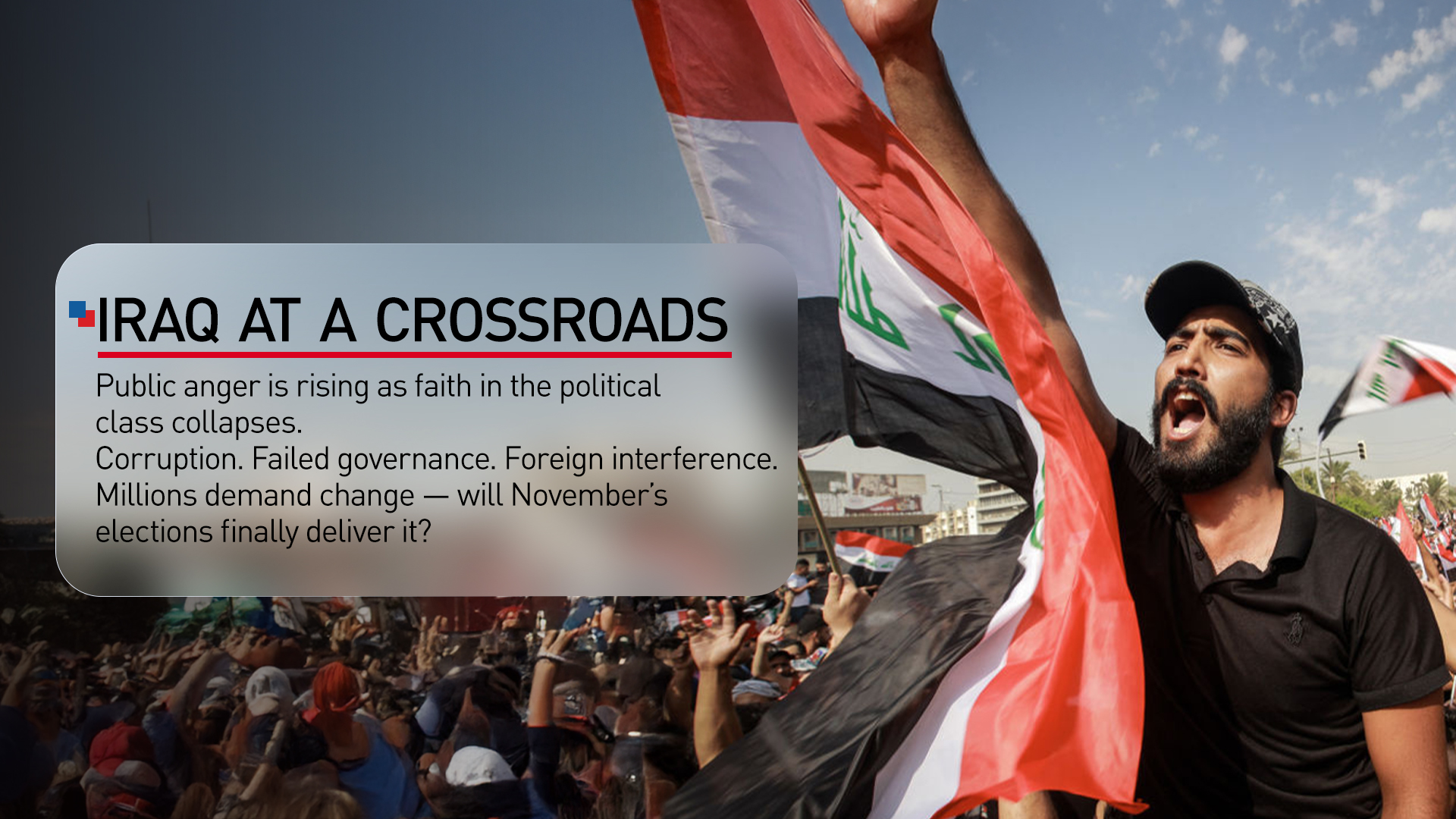Public Frustration Deepens as Iraqis Lose Faith in Political Class Ahead of November Elections
Corruption, failed governance, and militia influence drive widespread disillusionment and election boycotts across Iraq.

ERBIL (Kurdistan24) — Despite Iraq’s staggering annual oil revenues exceeding $72 billion, many residents of Baghdad still live amid poor public services, poverty, and half-finished projects—conditions that have fueled deep anger toward the ruling Shiite political parties and Iran-backed militias dominating the country’s political scene.
On one of Baghdad’s main streets, an expansion project launched two years ago stands abandoned halfway. Even before the first autumn rains, the area is littered with garbage and stagnant water.
“Look at our situation! Is this the gate of Baghdad?” exclaimed Ahmed al-Amiri, a local resident, as he pointed to the piles of trash.
“Our capital has become a dumping ground. No official even bothers to look.”
Despite the massive state budget of 211 trillion dinars last year, Iraq’s wealth has failed to translate into better living conditions.
Basic services such as electricity, water, and housing remain scarce, while the official poverty rate—reported at 14%—appears drastically understated in Baghdad’s poorer neighborhoods.
“I swear I can barely sleep,” said Sajjad Hussein, another resident.
“My entire income goes to rent, generator fees, and my children’s transport. If they gave us passports and told us to leave, I’d go without looking back.”
Many Iraqis say repeated protests and elections have brought no change. “We’re boycotting the vote,” said Salah Ali, a shopkeeper.
“None of these parties cares about us. I pay nearly 400,000 dinars each month just for rent, water, and power. Life like this isn’t sustainable.”
Such despair reflects a deeper national crisis: a government paralyzed by corruption and political division. Iraq’s fifth (Current) parliamentary term is widely regarded as the weakest in the country’s post-2003 history.
Out of 256 scheduled sessions, only 140 were held, and average attendance barely exceeded half of the 329 lawmakers.
Key legislation crucial to citizens’ welfare—including the oil and gas law, salary scale reform, and anti-corruption measures—remains stalled. The only law that the Shiite ruling elite was keen to have passed in the parliament was the law regulating the Iran-backed Popular Mobilization Forces (PMF), which triggered widespread controversy and anger among the people who have been suffering from the lack of basic services for decades.
Meanwhile, the parliament’s oversight role has collapsed, with eight incomplete investigation processes and no penalties for chronic absenteeism among lawmakers.
Political observers say this dysfunction stems from the deep entrenchment of sectarian parties and Iranian-backed factions that exert control over Iraq’s political, economic, and security institutions.
These networks, critics argue, have turned the country’s oil wealth into a private revenue source while leaving public services to decay.
“Iraq sells millions of barrels of oil every day,” said Ali Mahdi, another resident. “But none of that money reaches the people. The politicians buy properties abroad while we sleep hungry on the streets.”
This growing resentment has taken a political toll. Public confidence in parliament and government institutions has collapsed, and many voters are now openly calling for a boycott of the November 11 elections.
Observers warn that low turnout could further entrench the very factions many Iraqis blame for the country’s decline. Yet, for others, abstaining is the only form of protest left.
Whether disillusioned citizens will once again stay home—or surprise the establishment by backing reformist and independent candidates—may determine whether Iraq’s next government can break free from the cycle of corruption, mismanagement, and regional influence that has crippled the state for years.